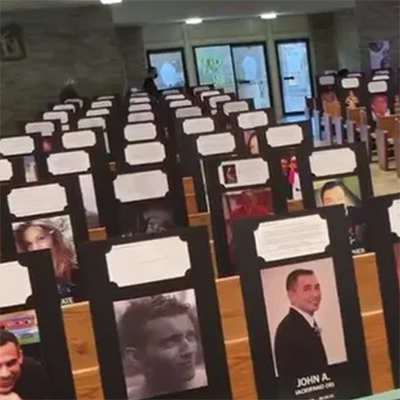Joe Malinconico
PATERSON — Bloomberg Philanthropies has awarded the city $1 million to launch a program officials say will provide hundreds of drug addicts with Suboxone, a medication that blocks opiates and reduces withdrawal symptoms.
In a city with more than 1,700 opioid overdoses per year, the RealFix initiative is designed to provide addicts with Suboxone 24 hours a day through an emergency call center, telemedicine appointments, an all-night pharmacy and medication deliveries within 90 minutes.
The goal is to offer rapid intervention when addicts run out of opiates and begin going through painful withdrawals, officials said.
“People who are addicted to opiates fear withdrawal more than they fear death,” said Edward Boze, the city official who crafted the RealFix plan.
But treatment services, Boze said, tend to be closed at the times when addicts are most willing to seek help. As a result, addicts facing withdrawal then beg, steal or prostitute themselves to get money for more drugs.
“The problem is that treatment programs have terrible customer service, while the drug dealers have excellent customer service,” Boze said. “Drug dealers will get anything you want, anywhere, any time of day.”
Under Bloomberg’s Mayors Challenge, Paterson was one of 15 cities to win $1 million grants in a competition among 631 applicants from 99 countries. Michael Odermatt, Bloomberg’s program manager for the Mayors Challenge, said Paterson’s proposal was “super smart and innovative.”
“This is the type of bold, moonshot idea that the Mayors Challenge was made for,” Odermatt said. “We thought it was incredible.”
Paterson will get the $1 million over the course of three years. The grant will cover the cost of staffing the helpline and a contract with a transportation company that will deliver the Suboxone or drive homeless addicts to the emergency room at St. Joseph’s Health, where they will get the medication.
But the telemedicine sessions and the Suboxone will be paid through the clients’ medical insurance, Boze said. As part of the initiative, RealFix will sign people up for Medicaid if they qualify for the insurance but are not enrolled.
The funding also will be used for outreach efforts, including the purchase of 300 medical alert bracelets with contact information about RealFix, which will be distributed among people living on the city’s streets.
About 30% of the grant will be used for Rutgers New Jersey Medical School to evaluate substance abuse treatment centers in the state, including identifying those that do not offer medically assisted treatment. Boze said people who participate in RealFix will undergo treatment in addition to getting Suboxone.
In its grant application, Paterson estimated that 2,763 people will call the RealFix helpline over the three years and that 921 of them will follow through and get the Suboxone. Among the city’s goals are a 10% reduction per year in opiate overdoses.
Paterson has been struggling for years to address the problem of opioid addicts who wander city streets, especially in the neighborhood around the main library on Broadway.
“Clearly, we have an opioid epidemic, like many cities around the country,” said Mayor Andre Sayegh. “You can’t police your way out of this problem.”
The mayor said Paterson needed to engage in “divergent thinking” to come up with the Suboxone plan.
“RealFix shows that we’re committed to being a city of solutions,” Sayegh proclaimed.
He noted that Boze is part of the innovation team he created several years ago, made up of City Hall staff members whose salaries are paid by the Henry and Marilyn Taub Foundation, and not by Paterson taxpayers.
“This doesn’t happen without their steadfast support,” Sayegh said of the Taub group.
Boze said RealFix likely would begin in the next couple of months, starting with transporting homeless addicts to the ER for Suboxone during limited hours. The full program, he said, will start later in the year. At present, the city is looking for doctors willing to handle telemedicine appointments overnight, he said.
City officials hope to continue RealFix beyond the three years covered by the grant. In the fourth year, Paterson may impose a 10% fee on telemedicine providers for patient referrals, according to the grant application.
Editor’s Note: The Taub Foundation provides a grant that helps fund Paterson Press.
